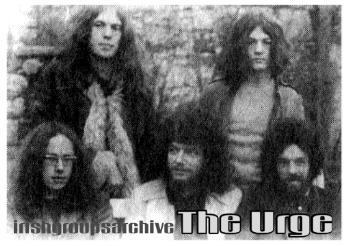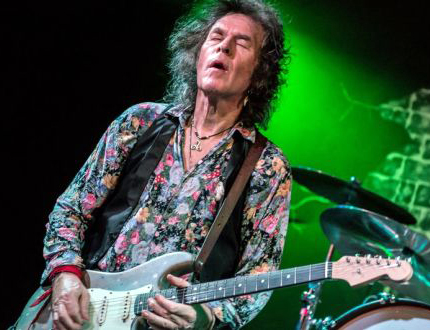|
Perhaps his best-known role was a brief but
dramatic cameo in 1982 when he stood in at short notice for Randy
Rhoads in Ozzy Osbourne’s band after the guitarist was killed in a
plane crash. Tormé was summoned to Leesurg, Florida, to join the
band and Osbourne credited him with helping to save his career. Such
was the chaos surrounding the tour, which had already been marked by
the notorious bat-biting incident and the singer’s subsequent
on-stage collapse, that the setback caused by Rhoads’ death had
threatened to tip Osbourne over the edge. Sympathising with his
family, the singer described Tormé as a “gentle soul with a heart of
gold”. His wife, Sharon Osbourne, recalled that he “helped Ozzy and
I at a time of great need and we will never forget that”.
His brief spell with the band was a fraught
one that Tormé recalled years later as a “heartrending horrendous
and stressful experience” which still gave him nightmares.
Tormé was born Bernard Torméy in Ranelagh in
Dublin in 1952 where his father, Brian, ran a well-known auction
rooms on Ormond Quay. He was educated at nearby Gonzaga College,
where the ethos chafed as his countercultural interests began to
emerge. He was studious nonetheless and went on to UCD, where he
graduated with an honours degree in Ancient Greek, one of only two
students in his year.
Always musical, he was largely self taught,
and his teenage years were spent in his bedroom at Albany Road,
developing his guitar skills. Tormé cited key influences at the time
as Jeff Beck, Eric Clapton, Jimi Hendrix and Rory Gallagher, whom he
came to know. He recalled that his first gig was playing for a Girl
Guides dance in Kilmainham in the 1970s. He went on to front a
number of Dublin-based outfits including Wormwood and the
short-lived Sauroktonos (in a nod to his classical studies, named
for Apollo Sauroktonos, the god who slays lizards) before leaving
for London and the burgeoning punk rock scene.
He formed his own band, touring with the
Boomtown Rats, then at the pinnacle of their career, before joining
Gillan, with whom he enjoyed considerable chart success, with three
top 10 albums in the 1980s.
After splitting from Gillan he returned to
leading his own band before spending time with Dee Snider’s
Desperado. Later he teamed up with former Gillan bassist John McCoy
in a series of projects.
Tormé was most at home with tight blues rock
outfits, telling one interviewer, “my basic template is still the
three-piece blues rock thing, Rory Gallagher, Cream, Hendrix, Blue
Cheer, Mountain, the original three-piece Grand Funk Railroad, early
Thin Lizzy with Eric Bell, and the Irish Skid Row with Gary Moore,
all that vintage three-piece stuff, heavy as shit but very blues
based. I love all that. It’s what I do best”.
Tormé had a stammer and channelled his
thoughts and feelings into his music, according to Hot Press
publisher Niall Stokes. “The amazing and beautiful thing was that
when he clambered on stage, and stepped up to the microphone to
sing, it all poured out without the slightest inhibition,” says
Stokes.
Tormé was a quiet, thoughtful figure whose
moderate habits stood in contrast to those of many of his
contemporaries, happiest at home surrounded by his family, his books
and his beloved cats. In addition to touring and recording, he ran a
studio in Sittingbourne in Kent, his home for 20 years and owned his
own record label.
He is survived by his wife Lisa Varder, and
their children Jimi, Eric and Tuli, and his sister, Cliodhna Murphy.
- Irish Times | 13 April 209
|


